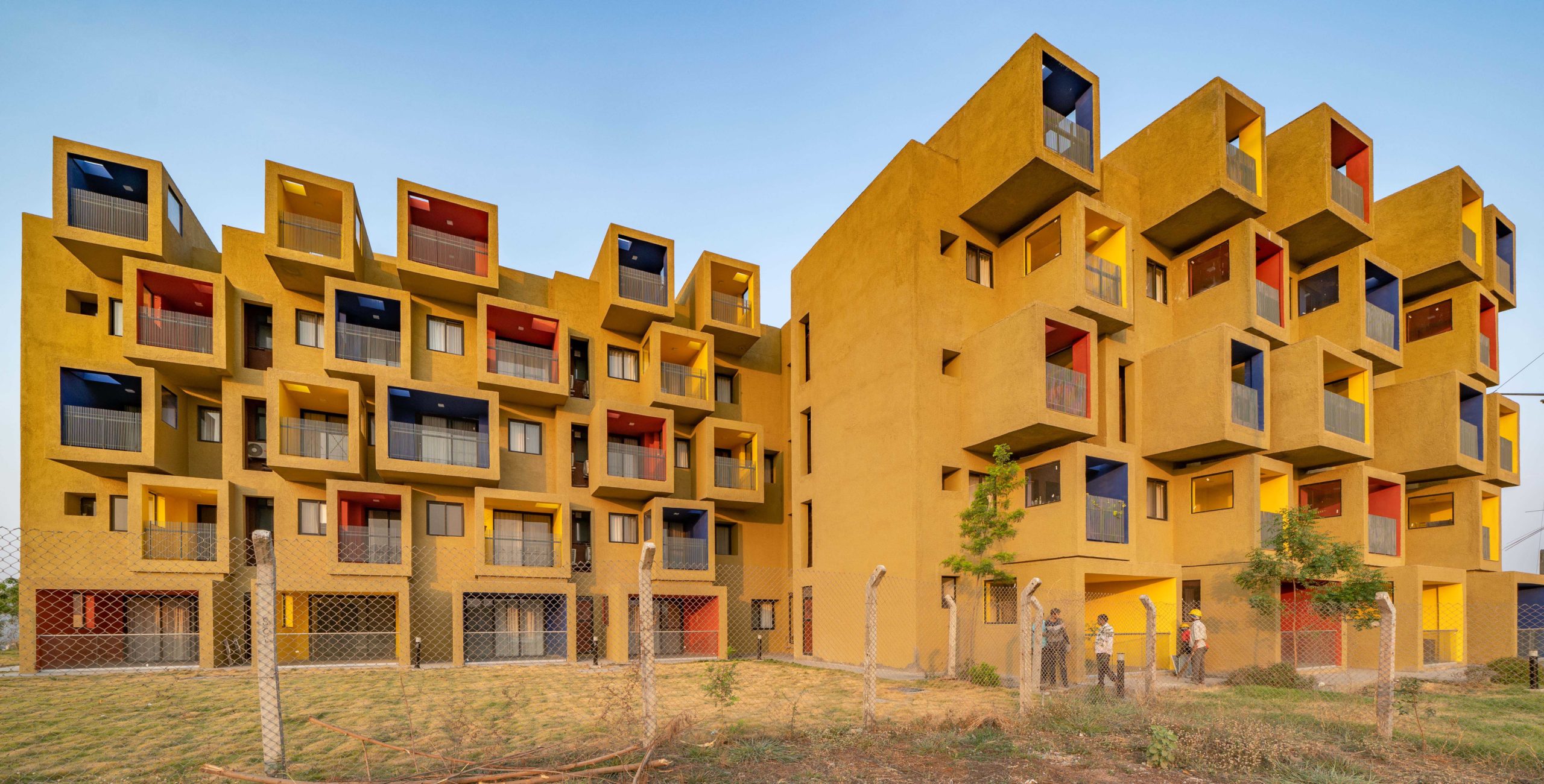CORE Headquarters – CORE Construction needed a new headquarter building for their recent move into Frisco, Texas. 5G conceptualized a building that showcased their capacity as craftspeople by using common construction materials, i.e., cast-in-place concrete tilt-wall, structural steel, brick, in an elevated way while narrating within the design the story of the its founding by a mason.
Architizer chatted with Yen Ong, Co-founder and Partner at 5G Studio Collaborative, to learn more about this project.
Architizer: What inspired the initial concept for your design?
Yen Ong: The design was inspired by the story of CORE’s founding by a mason and its commitment to the craft of construction. The design team believed it was important to showcase their unique talents as craftspeople within the building they would inhabit and began with a set of commitments to use commonplace materials and techniques to express the rawness of the materials. Within such structure, the building program, which included a training center for their associates and ample communal spaces, was organized around a day-lit atrium, a beautiful precast concrete stair, and a tall glazed curtainwall. The daily activities of the users always place them in encounter with interesting relationships between complementary materials and assemblies, constantly reminding them of their role within the construction of meaningful spaces.

© 5G Studio Collaborative
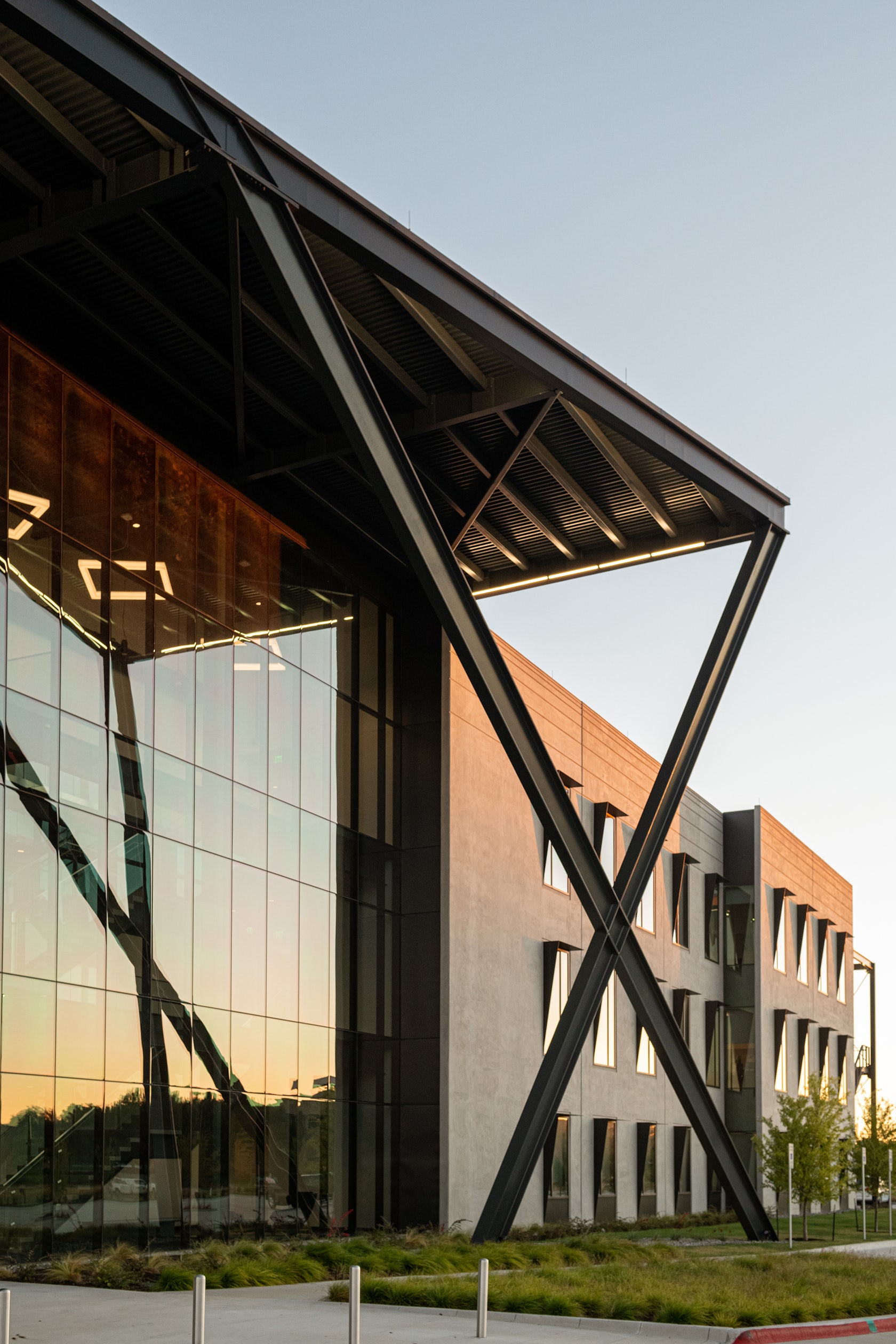
© 5G Studio Collaborative
What do you believe is the most unique or ‘standout’ component of the project?
There are numerous unique relationships between materials, i.e., different textures, colors, composition, shape, and form, throughout the building. The overall architectural effect cannot be fully appreciated through photography and require proximity with the physical conditions to evoke the intended experiences. The design makes the point that detail and craftmanship matter and humanize people’s interaction with built structures.
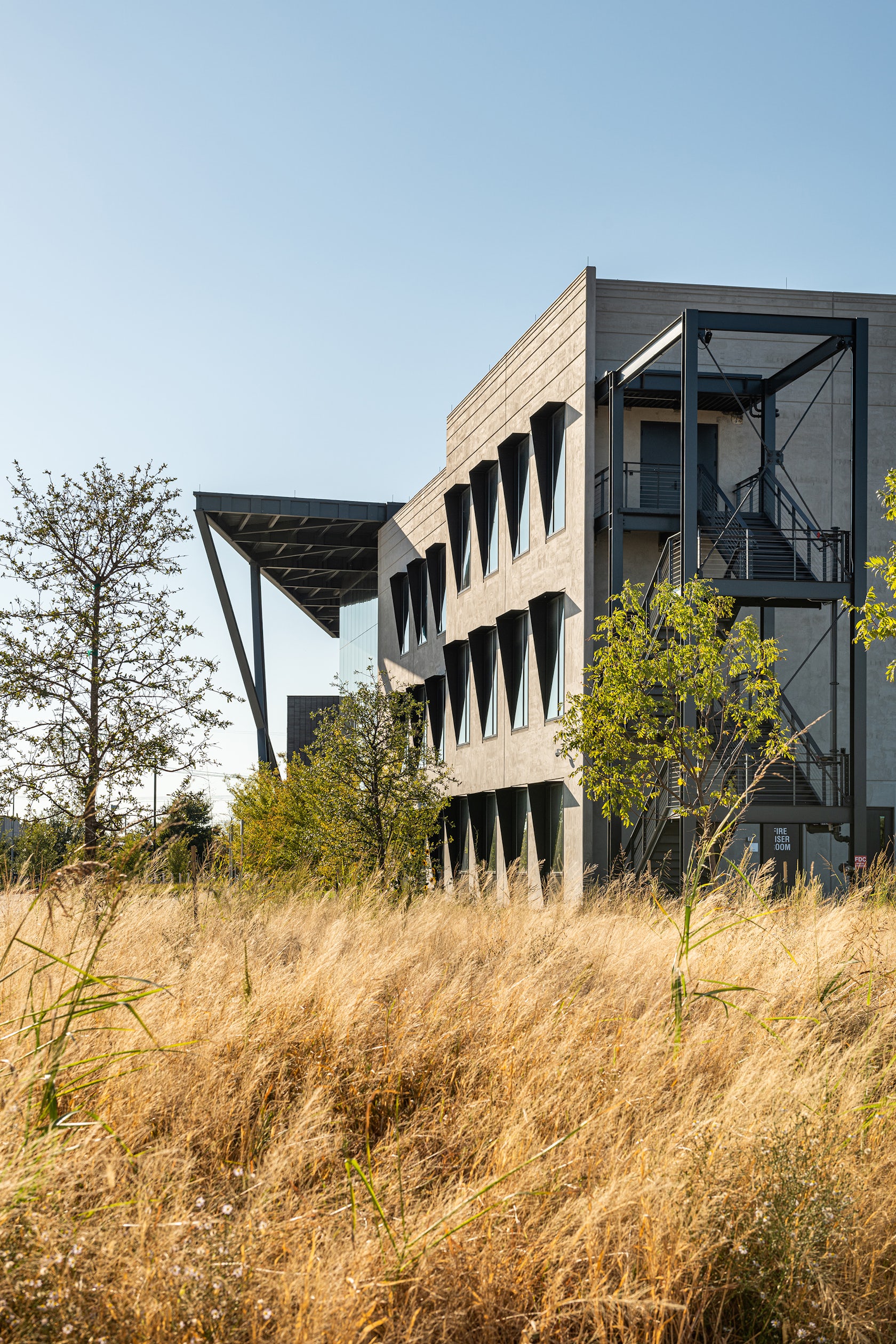
© 5G Studio Collaborative
What was the greatest design challenge you faced during the project, and how did you navigate it?
The design team pursued an architectural objective that relied on the visual revelation of material qualities and joineries. Such intention demanded a high degree of focus and rigor which involved the scrutiny of all critical intersections of assemblies. The designers found that early conversations with the potential makers and installers were very beneficial in keeping them engaged and invested in the outcome, having understood the objective of the design in service of the larger story of the client.

© 5G Studio Collaborative
How did the context of your project — environmental, social or cultural — influence your design?
The site was a typical suburban office lot with one of its edges fronting a manmade pond. The design oriented the primary outward views from the building towards this water feature and configured the building to embrace a generous outdoor green space that serves as an amenity for the employees and the visitors. The open spaces around the building allow the designers to specify a highly energy-efficient geothermal HVAC system to serve the entirety of the building. The absence of taller buildings around the site also meant that the roof of the building could be used for a large array of photovoltaic panels.
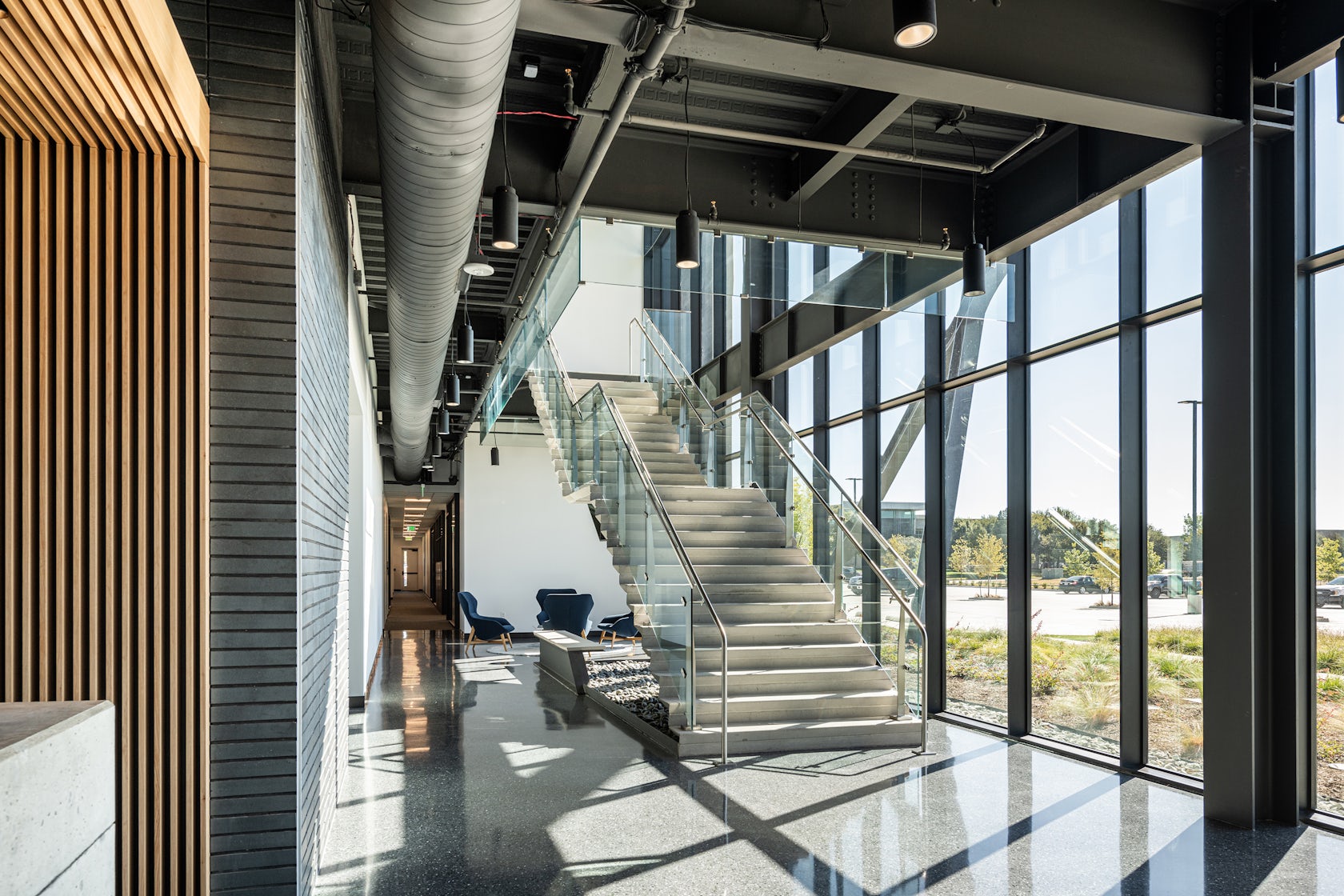
© 5G Studio Collaborative
How important was sustainability as a design criteria as you worked on this project?
Sustainability was a very important objective in the design as well as to the corporate brand image of the client. The building uses geothermal HVAC system and a large array of photovoltaic panels for energy efficiency; high performance glass and insulative values for the exterior walls; and large overhangs and shading devices over occupiable outdoor spaces and building openings.
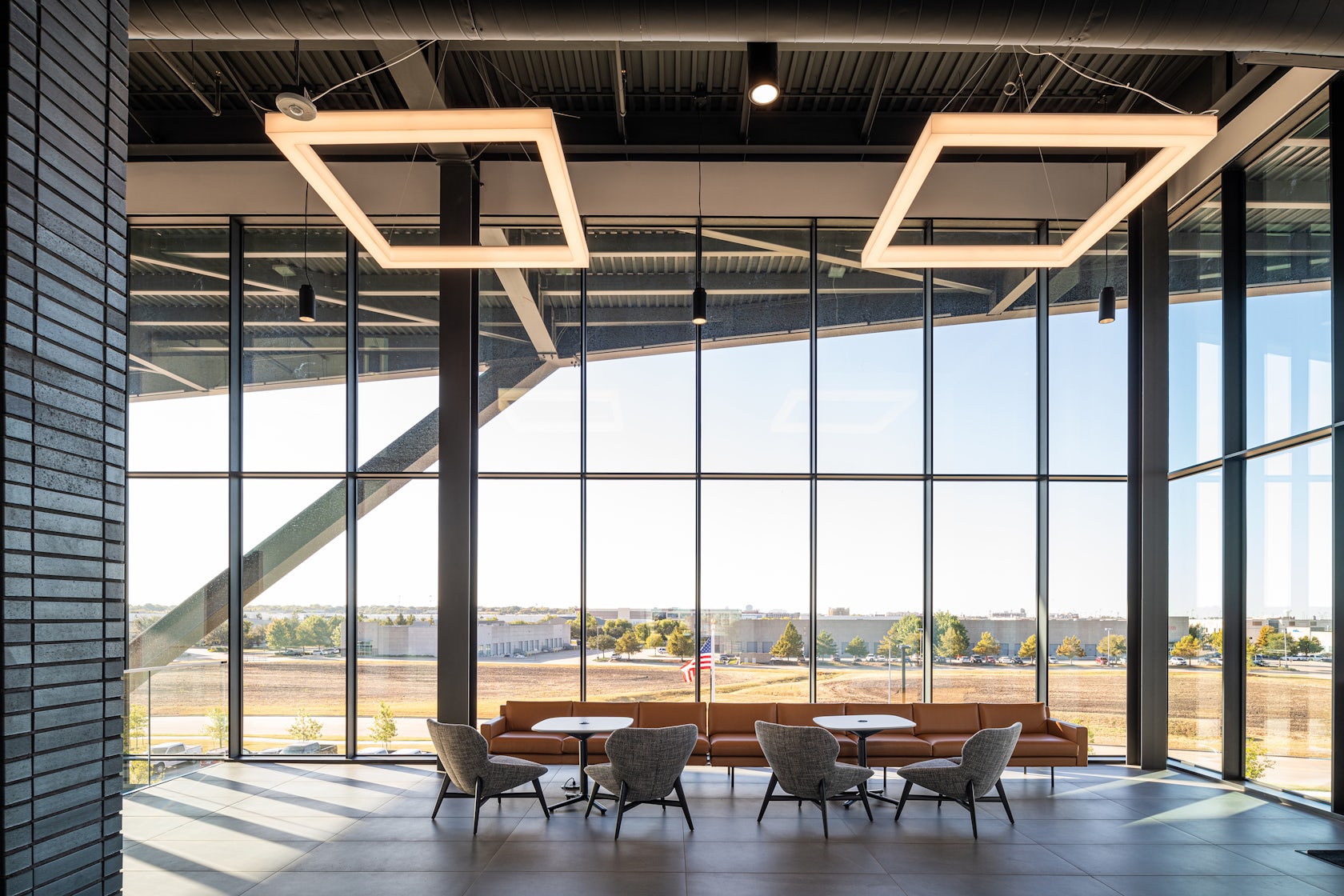
© 5G Studio Collaborative
For more on CORE Headquarters, please visit the in-depth project page on Architizer.
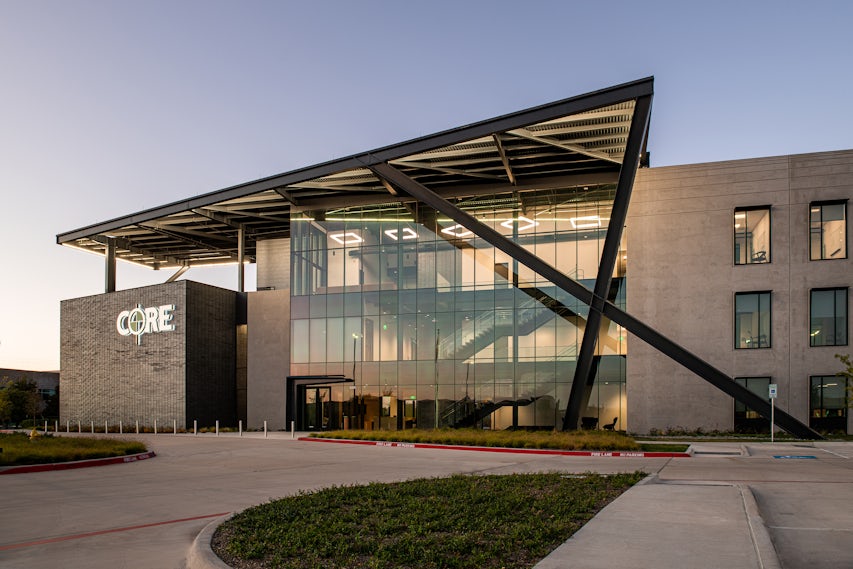






 CORE Headquarters
CORE Headquarters 